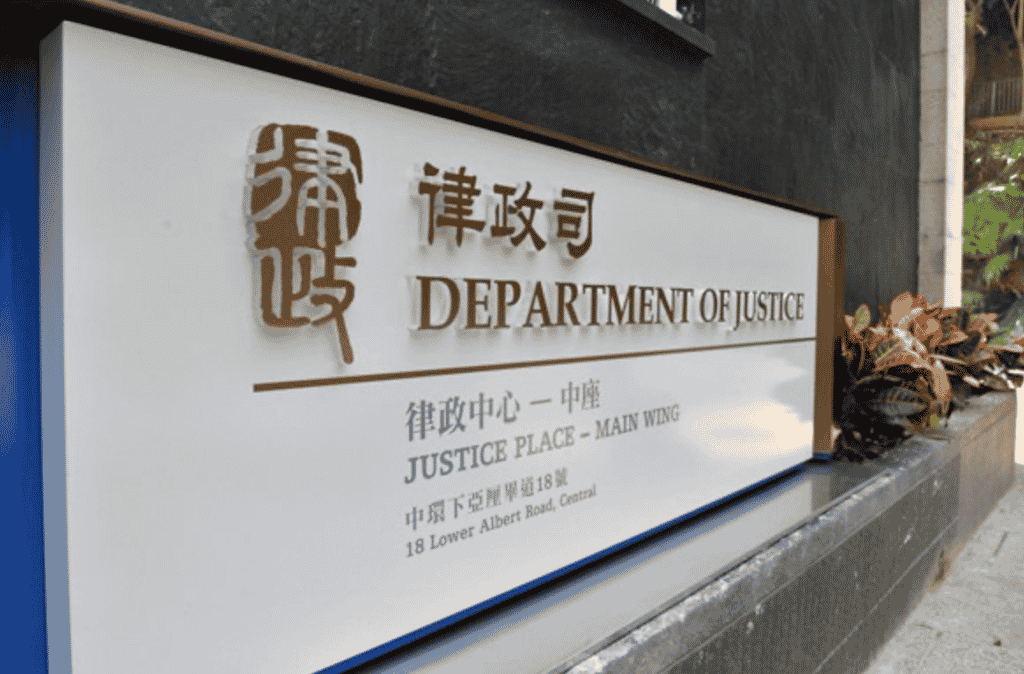Looking around the world, many governments are facing the challenge of building public trust. The SAR government is no exception in this regard. Although this is not a problem unique to Hong Kong society, it is generally believed that the stronger the foundation of trust between the government and the people, the more conducive it is to governance and the sustainable development of society.
A recent study by the Youth Entrepreneurship Research Center found that the young people surveyed had a poor perception of mutual trust between themselves and the government; the impact of distrust included that they would question government decisions, plan to immigrate, and participate in protests. Activities etc. According to survey data from the Hong Kong Asia-Pacific Institute of the Chinese University, the percentage of citizens who express trust in the SAR government has only remained at more than 20% to more than 30% in recent years. These have brought hidden worries to the long-term stable development of society, and the authorities have to face them seriously.
More confident in public financial management and administrative capabilities
Although the SAR government has been put to the test in terms of winning the public's trust, the current government's efforts to make improvements are not without foundation. The above-mentioned research by the Creative Research Institute found that the young people surveyed still relatively trust the SAR government’s public financial management and administrative capabilities. Hong Kong society was able to avert danger from the Asian financial turmoil and the international financial tsunami. The financial thinking and decisive decision-making of the SAR government at that time played a key role. However, in recent years, the government's finances have only suffered from "treasury flooding". In addition, thanks to the efficient and simple system implemented by the government, the SAR government has always ranked high in many international competitiveness or rating reports in terms of administrative capabilities and efficiency.
This trust is based on the cumulative perception of the government's long-term work results; in short, it is the public's response to the government's performance. The most direct and basic conditions for the government to win public approval are through effective policy messaging and timely delivery of policy results. The business community and non-governmental organizations publish annual reports as a reference to gain the trust of the public. For the business community, annual reports can enhance corporate transparency, maintain relationships with stakeholders, and are an important part of corporate governance. Nowadays, many NGOs regard annual reports as an important measure to demonstrate accountability, and voluntarily provide the value created by entrusted resources to respond to the expectations of society, recipient groups, and partners.
Unite society through short films on social platforms
In recent years, many overseas governments have used performance reports to gain public trust with reference to the above factors and innovative methods. In Australia, the Department of Prime Minister and Cabinet, in addition to providing traditional report documents for detailed explanations in the department's annual work report, has also set up an online page in recent years to outline and explain the progress of the government's major work during the year, such as the results of promoting racial inclusion.
A few months ago, the department secretary-general used a short video on an online social platform to convey the message that the government is committed to enhancing citizen participation and social cohesion, and encouraged citizens to actively respond to the work report.
Research by the Institute of Creative Research shows that more than a quarter (26.5%) of the young people surveyed believe that the SAR government can win the trust of citizens by improving the transparency of its governance performance. The policy address produced by the previous SAR government was certainly a good start; however, with the current expansion of information and the widespread use of new media, the government usually adopts the form of policy information dissemination, such as uploading digital text reports, especially when policies involve some more complex concepts. It is not easy to make the information concise and easy to understand, and to effectively convey information to the public so that the public can grasp the information they are concerned about.
Each bureau reports to meet citizens’ demands
Society's expectations for public service levels and government policy outcomes are increasing day by day. With reference to overseas examples, in order to create a direction that is conducive to building public trust in the government and strengthening the perception of trust, we believe that the policy bureaus of the SAR government can consider conducting annual policy performance reports, with each director-general focusing on the bureau's work progress and policy results to the public. , providing targeted performance information to further meet the demands of citizens. The authorities can also adopt innovative promotion techniques and make good use of social media, such as making short videos or "lazy bags", to enhance the readability and promotion effect of information and promote the effective transmission of policy messages.
Chief Executive Carrie Lam Cheng Yuet-ngor once said that strengthening citizens' trust in the SAR government is the policy focus of this government. However, current social divisions are still serious, and it is not easy to build consensus. Improving the release of policy performance, compared with controversial development issues, is a task that the government can currently control and implement. We believe that a government with commitment, action and performance is what the society likes and expects. We believe that being open and honest and improving policy performance reporting will help consolidate the foundation for the SAR government to build public trust through policy results.
Pan Xuezhi, Convener of the Governance and Political Structure Group of "Youth Entrepreneurship Research Bank"
Cheung Ching-yun, Researcher, Hong Kong Youth Association



